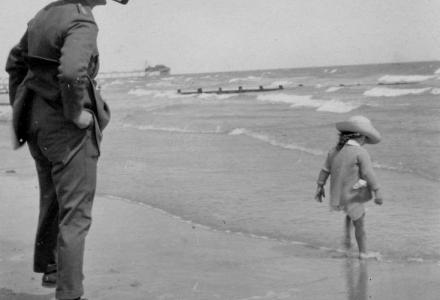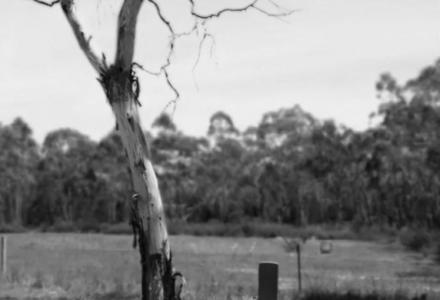Vernon Mullin was 21 when he sailed for Gallipoli. He was shot and wounded during the Battle of Lone Pine. But worse was to come. Barely recovered, Vernon was ordered to return to his unit and take up the fight in France.
At Pozières in 1916 a grenade blasted hot shards into Vernon’s eyes. Taken prisoner by the Germans, their surgeons tried to save his sight. They failed. After months of captivity, Vernon Mullin was amongst the first Australian prisoners exchanged with Germany. Weak and blind, he was sent to England for further treatment.
Vernon’s new home was the blinded soldiers’ hostel, St Dunstan’s. Its founder, Sir Arthur Pearson, was a newspaper magnate whose own sight had been taken by glaucoma. He established St Dunstan’s to offer occupational training for the visually impaired. Here Vernon and his fellow patients would learn how to be blind. Men were trained in braille, typing, switchboard operation, massage, basketry, mat and net making, and joinery.
Vernon travelled back to Australia with a braille machine and a Remington typewriter. Not long after his return, he secured a post as an operator in Melbourne’s Repatriation Department. Far from a story of helplessness, Vernon lived an independent life; he married and provided for his wife, Adelaide. Vernon Mullin is one of the success stories of post-war repatriation. But he was one of the ‘lucky’ ones.



